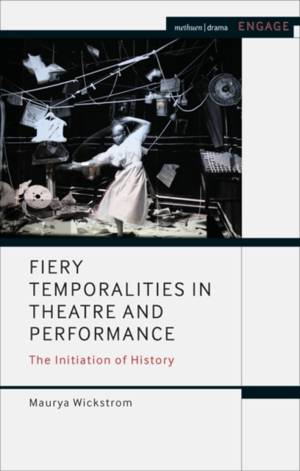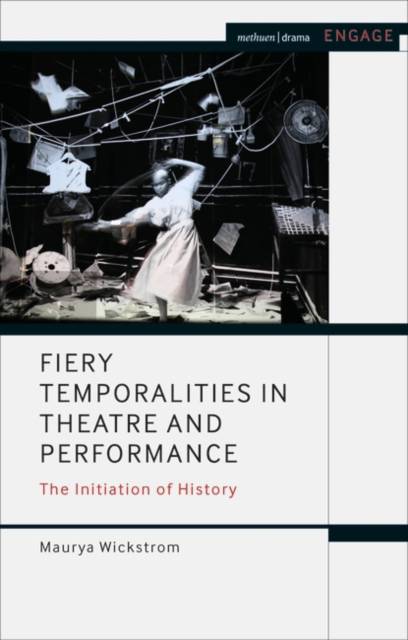
Je cadeautjes zeker op tijd in huis hebben voor de feestdagen? Kom langs in onze winkels en vind het perfecte geschenk!
- Afhalen na 1 uur in een winkel met voorraad
- Gratis thuislevering in België vanaf € 30
- Ruim aanbod met 7 miljoen producten
Je cadeautjes zeker op tijd in huis hebben voor de feestdagen? Kom langs in onze winkels en vind het perfecte geschenk!
- Afhalen na 1 uur in een winkel met voorraad
- Gratis thuislevering in België vanaf € 30
- Ruim aanbod met 7 miljoen producten
Zoeken
€ 228,95
+ 457 punten
Uitvoering
Omschrijving
Fiery Temporalities in Theatre and Performance: The Initiation of History considers the three categories of time that can be thought to occur specifically in theatre and performance: inceptions, births, or initiations of human history. Each of these temporalities works against what are often thought to be theatre's prevailing temporal mechanisms.
Maurya Wickstrom grounds her analysis in the theories of three leading philosophers: Alain Badiou, Giorgio Agamben, and Antonio Negri. She considers the ways in which theatre and performance responds to the questions of the new present, penultimate time, and our normative experience of time. Specific productions examined include: Hofesh Schechter's Political Mother, Andrew Schneider's You are Nowhere, Romeo Castellucci's On the Concept of the Face, Dead Centre's Lippy, Cassils' Terisias, Carl Theodor Dreyer's silent 1928 film, The Passion of Joan of Arc, George Bernard Shaw's St. Joan, C.L.R. James' Toussaint Louverture: The Story of the Only Successful Slave Revolt in History, Aimé Césaire's The Tragedy of King Christophe: A Play, Edouard Glissant's Monsieur Toussaint: A Play, Brecht's Drums in the Night, and Heiner Muller's The Task. The book fits within what has been called 'the temporal turn' in the arts and will be among the first books in theatre studies to wrestle with the phenomenological concept of time.
Maurya Wickstrom grounds her analysis in the theories of three leading philosophers: Alain Badiou, Giorgio Agamben, and Antonio Negri. She considers the ways in which theatre and performance responds to the questions of the new present, penultimate time, and our normative experience of time. Specific productions examined include: Hofesh Schechter's Political Mother, Andrew Schneider's You are Nowhere, Romeo Castellucci's On the Concept of the Face, Dead Centre's Lippy, Cassils' Terisias, Carl Theodor Dreyer's silent 1928 film, The Passion of Joan of Arc, George Bernard Shaw's St. Joan, C.L.R. James' Toussaint Louverture: The Story of the Only Successful Slave Revolt in History, Aimé Césaire's The Tragedy of King Christophe: A Play, Edouard Glissant's Monsieur Toussaint: A Play, Brecht's Drums in the Night, and Heiner Muller's The Task. The book fits within what has been called 'the temporal turn' in the arts and will be among the first books in theatre studies to wrestle with the phenomenological concept of time.
Specificaties
Betrokkenen
- Auteur(s):
- Uitgeverij:
Inhoud
- Aantal bladzijden:
- 264
- Taal:
- Engels
- Reeks:
Eigenschappen
- Productcode (EAN):
- 9781474281690
- Verschijningsdatum:
- 14/06/2018
- Uitvoering:
- Hardcover
- Formaat:
- Genaaid
- Afmetingen:
- 25 mm x 24 mm
- Gewicht:
- 453 g

Alleen bij Standaard Boekhandel
+ 457 punten op je klantenkaart van Standaard Boekhandel
Beoordelingen
We publiceren alleen reviews die voldoen aan de voorwaarden voor reviews. Bekijk onze voorwaarden voor reviews.









